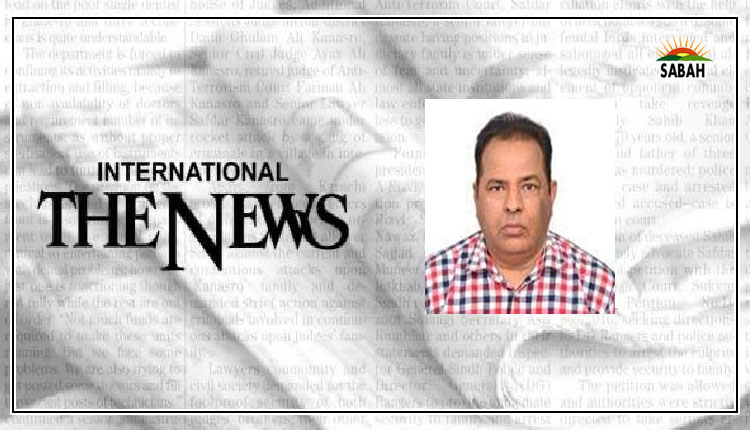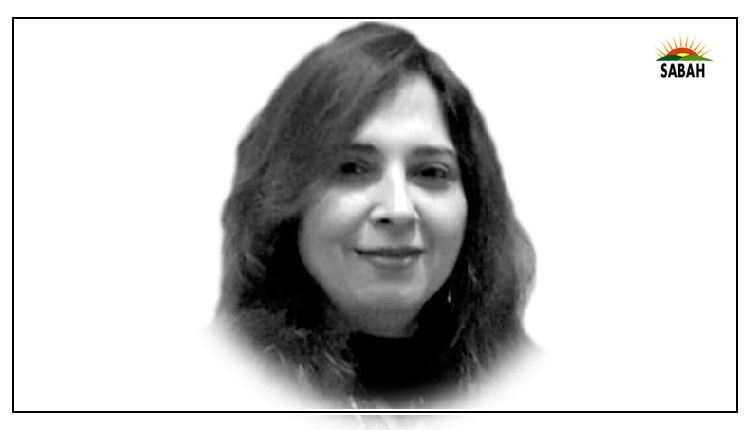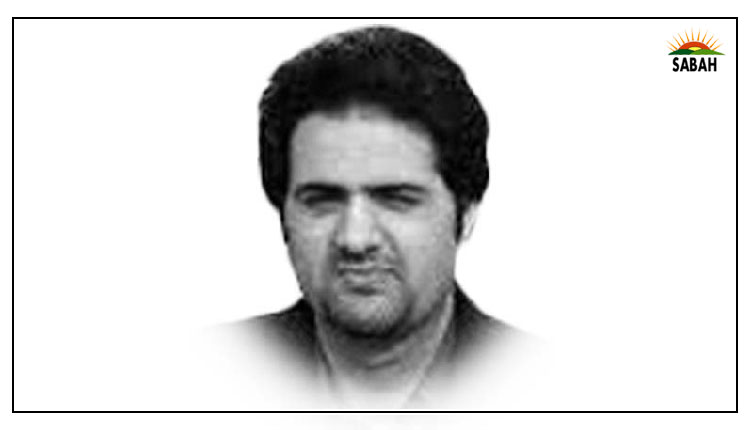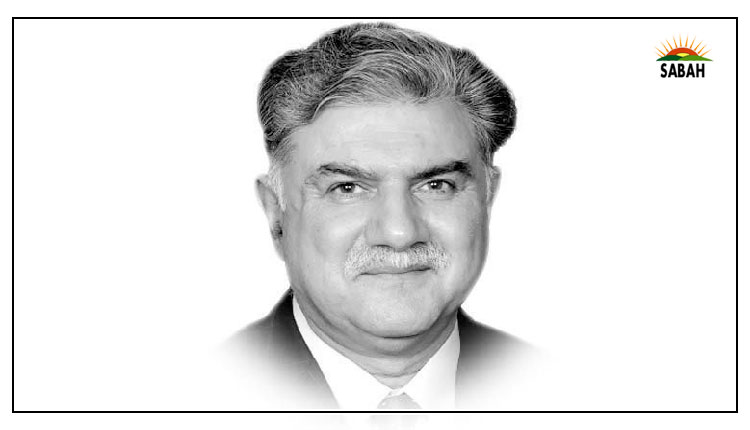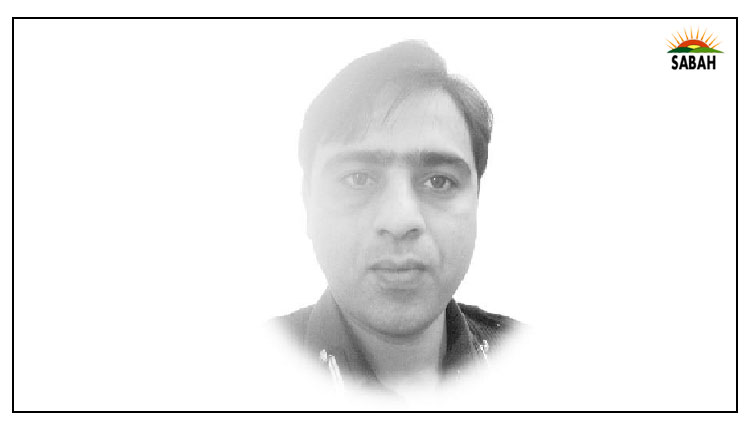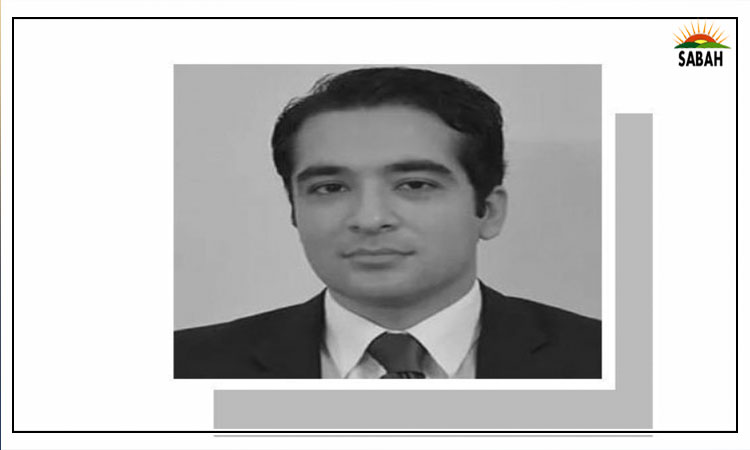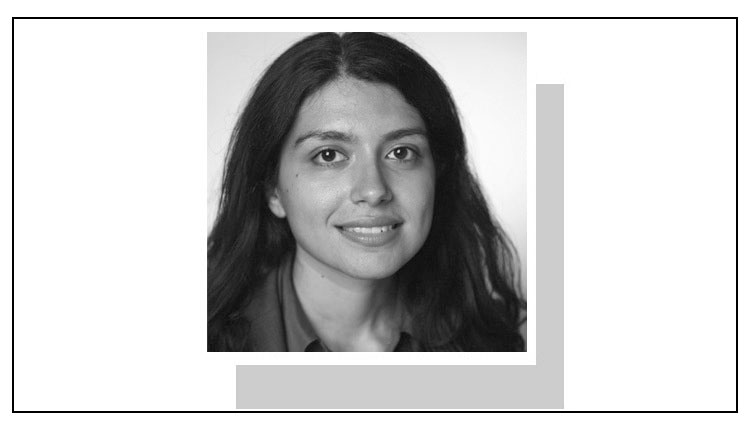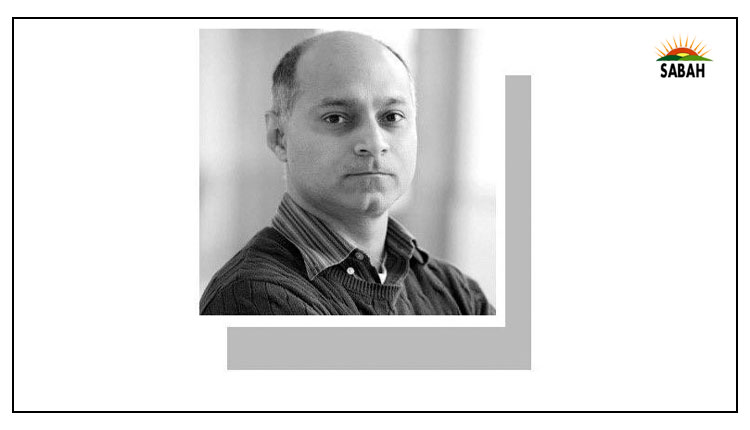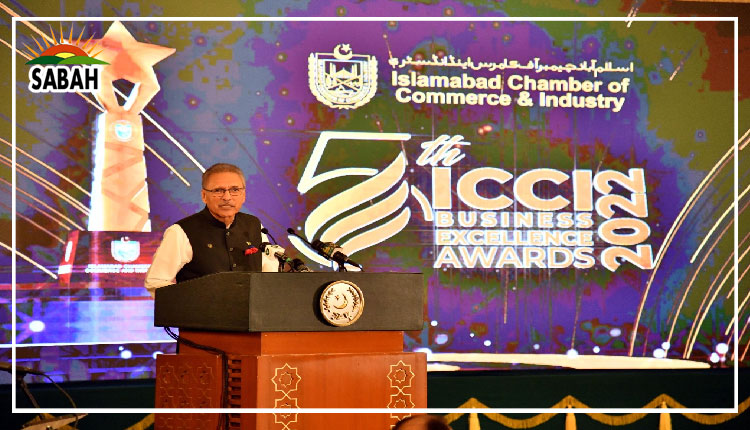All state institutions under test, need to rise up to people’s aspirations: President Alvi
ISLAMABAD, July 22 (SABAH): President Dr. Arif Alvi has said that all state institutions and media should endeavour to create enabling environment for setting up a government which was truly representative of the people of Pakistan and reflected their aspirations and hopes to ensure political and economic stability needed for the promotion of business, trade and investment in the country.
President Dr. Arif Alvi expressed these views while addressing the 5th Islamabad Chamber of Commerce and Industry (ICCI) Business Excellence Awards ceremony, at Aiwan-e-Sadr. President ICCI, Muhammad Shakeel Munir and former President of ICCI, Khalid Iqbal Malik, also addressed the ceremony. A large number of people from the diplomatic and business community attended the event.
Addressing the ceremony, President Dr. Arif Alvi said that Pakistan could rise within a decade if it strengthens its democracy, establishes a government that is truly representative of its people’s aspirations, and its leadership makes the right decisions, curbs corruption, upholds justice and promotes human rights.
The President said that consultative institutions, trade and investment, and passion were the key ingredients for any nation to become prosperous. He stated that in addition to making the right decisions, and implementing dynamic policies, Pakistan needed to curb corrupt practices if it was to become a peaceful, prosperous, progressive and respectable country in the comity of nations. He said that Pakistan needed to maintain cordial relations with all its international partners and avoid becoming parties to divisive politics in international relations.
Urging the business community to invest in the development of intellectual avenues, the President said that upskilling our human resources in different sectors of the economy, especially the IT sector, could help Pakistan achieve high economic growth rates. He stated that by focusing on the development of the knowledge-based economy and intellectual development of its human resources, Pakistan can achieve the status of a developed, peaceful and progressive country.
He said that the business and industrial sectors were the backbone of the country’s economy. “Country grows when the industry grows, therefore, the government should take every step possible to promote business and industry by rationalizing the taxation system, setting up new industrial estates and economic zones and focusing on the promotion of exports and industrialization”, he added.
The President also called upon the members of ICCI to collaborate with universities to develop indigenous solutions to the specific problems being faced by the local industry. He stated that it was the social responsibility of the private sector to contribute to the uplift of society and the economy, adding that ICCI should help make cities more environmentally friendly and accessible for differently-abled people (DAPs). He said the private sector should also take steps to provide training and skills to the uneducated and DAPs and employ them as per their capabilities as equally empowered employees. He added that all industries should make sure that the quota fixed for DAPs is fully implemented.
He urged the business community to increase the participation of women in business and other social activities, stating that the exclusion of women from economic and social activities had no basis in religion rather it was derived from cultural and human biases embedded in our culture and social norms. “Hazrat Khadeeja (RA) was a businesswoman who used to actively participate in business activities”, he said. He stressed that cultural and structural hindrances against women’s inclusion should be removed by taking affirmative action in different sectors, including business, trade, investment and manufacturing. He regretted that women were being deprived of their inheritance and property rights in some parts of the country, despite Islam and the Constitution granting them their rights.
President Dr. Arif Alvi also highlighted that polarization in Indian society was increasing and the situation of Indian minorities, especially Muslims, was particularly debilitating. He said that in India religious minorities were facing intimidation, harassment and discrimination at the hands of the Hindu majority population. He emphasised that when the business interests of India were hurt, India was forced to take action against those who hurt the religious sentiments of Muslims. He further stated that high moral and ethical standards should be the basis of global order, instead of vested interests.
While expressing concerns over brain drain and Pakistan’s low ranking in the gender parity index, he said that Pakistan pursued a regressive policy of exporting highly educated and skilful Human Resources from the 70s to the 90s which deprived the country of necessary human intellect and knowledge needed for progress and development. He said that government and the private sector should create enabling conditions to stop the brain drain and bring the women population into the mainstream of the economy.
President ICCI, Shakeel Munir, said that industrialization could pave the way for Pakistan’s accelerated growth and would also help address the issue of inflation and overcome the economic difficulties being faced by the country.
Former President of ICCI, Khalid Iqbal Malik, said that Pakistan had the potential to take its annual exports up to USD 40 billion provided the right policies were in place and business and industrial sectors were properly consulted.
Earlier, the leading businessmen of Islamabad were awarded excellence awards in different sectors such as the Residential & Commercial sector, Health Care sector, Philanthropy, Food Processing and Warehousing, Engineering and hospitality.




